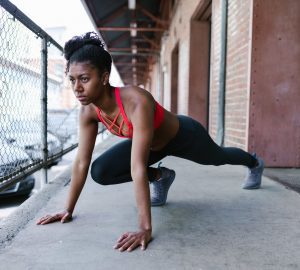Over the years, dietary choices have gained significant attention, with an increasing number of people exploring alternatives to traditional meat-based diets. Among these alternatives, plant-based diets and vegetarianism have emerged as popular choices. For athletes, understanding the differences between these two approaches is crucial, as both can offer unique benefits to support their performance, recovery, and overall well-being. This article aims to explore the differences between a plant-based diet and vegetarianism and shed light on how athletes can benefit from each.
Plant-Based Diet:
A plant-based diet primarily focuses on consuming whole, unrefined plant foods while minimizing or eliminating animal products. The foundation of this diet is a diverse range of fruits, vegetables, whole grains, legumes, nuts, and seeds. Plant-based diets are rich in essential nutrients, fiber, and antioxidants, which can provide athletes with numerous advantages.
- Enhanced Nutrient Density: Plant-based diets emphasize a wide array of colorful fruits and vegetables, ensuring athletes receive ample vitamins, minerals, and antioxidants. These nutrients are essential for optimizing energy production, maintaining a strong immune system, and supporting overall health.
- Reduced Inflammation: Plant-based diets are known for their anti-inflammatory properties due to their high fiber and antioxidant content. By minimizing inflammation, athletes may experience improved post-exercise recovery and a reduced risk of chronic diseases.
- Improved Cardiovascular Health: Plant-based diets are associated with lower cholesterol levels, reduced blood pressure, and improved heart health. These benefits can enhance an athlete’s cardiovascular endurance and overall performance.
- Efficient Digestion and Gut Health: The fiber-rich nature of plant-based diets promotes a healthy digestive system and optimal gut microbiome. Athletes may experience improved nutrient absorption, regular bowel movements, and reduced gastrointestinal issues.
Vegetarianism:
Vegetarianism, on the other hand, involves abstaining from consuming meat and sometimes other animal-derived products. While vegetarian diets can vary in their inclusivity of animal products (e.g., lacto-vegetarian, ovo-vegetarian, lacto-ovo-vegetarian), they share some common benefits that can positively impact athletes.
- Adequate Protein Intake: Vegetarian diets can provide athletes with ample protein through sources such as legumes, dairy products, eggs, and plant-based protein powders. Protein is vital for muscle repair, growth, and recovery, making it crucial for athletes to meet their dietary requirements.
- Improved Weight Management: Vegetarian diets, when properly balanced, tend to be lower in saturated fats and cholesterol. This can help athletes maintain a healthy body weight and composition, which is beneficial for various sports and activities.
- Disease Prevention: Vegetarian diets have been associated with a lower risk of obesity, heart disease, type 2 diabetes, and certain types of cancer. By reducing the risk of these ailments, athletes can enjoy long-term health benefits and sustained athletic performance.
- Environmental Consciousness: Vegetarianism aligns with sustainability and ethical considerations by reducing the environmental impact associated with intensive animal agriculture. For athletes who value environmental stewardship, vegetarianism can be a choice that aligns with their principles.
Athletes who follow a vegetarian diet include Venus Williams and Lewis Hamilton. Venus Williams, the legendary tennis player, has been a long-time advocate of a plant-based diet. She adopted a vegan lifestyle to manage her autoimmune disease and has experienced improved energy levels and overall well-being. Lewis Hamilton, the seven-time Formula 1 World Champion, is also known for his vegetarian diet. He made the switch to a plant-based lifestyle in 2017 and attributes his increased focus, energy, and physical performance to his dietary choices.
On the other hand, athletes who follow a plant-based diet include Novak Djokovic and Alex Morgan. Novak Djokovic, one of the greatest tennis players of all time, is a vocal advocate of a plant-based diet. He credits his success on the court to his gluten-free and plant-focused diet, which he believes enhances his stamina, recovery, and mental clarity. Alex Morgan, an Olympic gold medalist and FIFA Women’s World Cup champion, has embraced a plant-based diet to support her athletic endeavors. As an advocate for animal rights, she credits her plant-based lifestyle for improving her energy levels and aiding in recovery.
These athletes serve as shining examples of the benefits and success that can be achieved by adopting vegetarian or plant-based diets while excelling in their respective sports. Their choices not only showcase the power of these dietary approaches for athletic performance but also highlight their commitment to personal values such as health, sustainability, and animal welfare. Their journeys inspire and encourage other athletes to explore and embrace the potential benefits of vegetarianism or a plant-based lifestyle.
Choosing What Works Best:
Ultimately, the decision between a plant-based diet and vegetarianism depends on individual preferences, nutritional needs, and ethical considerations. Some athletes may find that a plant-based diet offers the broadest spectrum of nutrients and benefits, while others may thrive on a well-planned vegetarian diet that includes animal products like dairy and eggs. It is crucial to consult with a registered dietitian or sports nutritionist to ensure proper nutrient balance, especially when adopting any dietary change.
Both plant-based diets and vegetarianism can provide athletes with unique advantages that support their performance, recovery, and overall well-being. While a plant-based diet emphasizes whole, unrefined plant foods, vegetarianism involves abstaining from meat and sometimes other animal products. Athletes can benefit from a plant-based diet through enhanced nutrient density, reduced inflammation, improved cardiovascular health, and efficient digestion. On the other hand, vegetarianism offers benefits such as adequate protein intake, improved weight management, disease prevention, and environmental consciousness.
The key is to choose the dietary approach that aligns with an athlete’s individual needs, preferences, and ethical considerations. Consulting with a registered dietitian or sports nutritionist is crucial to ensure proper nutrient balance and optimize athletic performance.
In conclusion, both plant-based diets and vegetarianism offer distinct advantages for athletes. Exploring these dietary approaches can lead to improved athletic performance, enhanced recovery, and long-term health benefits. With careful planning and guidance from professionals, athletes can thrive on either a plant-based diet or a vegetarian lifestyle while achieving their fitness goals.








